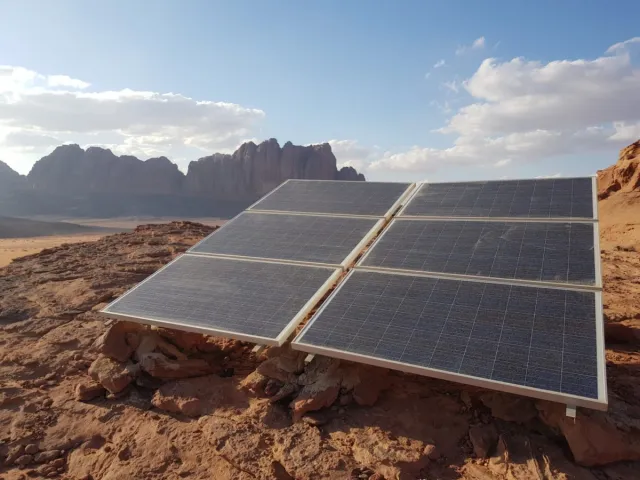Orange Jordan adds 37 MW of solar under ‘wheeling’ scheme
Aug 1, 2019 09:45 PM ET
- With grid capacity a limiting factor, the Middle Eastern country has moved to foster private-to-private solar projects to meet industrial power demand.

With grid capacity a limiting factor, the Middle Eastern country has moved to foster private-to-private solar projects to meet industrial power demand.
Jordanian telecom operator Orange Jordan will use a 37 MW solar project to help meet its electricity demand. According to an announcement by the European Bank for Reconstruction and Development (EBRD), the project will be the largest private-to-private solar project in the country.
The EBRD will provide $15 million of the $35 million project cost through a loan. The Jordan Kuwait Bank PSC, with $9 million; the Arab Jordan Investment Bank (Qatar) LLC, with $6 million; and the Clean Technology Fund, with $4.6 million, will co-finance the project.
Kawar Investment provided engineering, procurement, and construction services on the project which sees capacity spread across sites constructed in the King Hussein Bin Talal Development Area, the Mafraq governorate and the Amman governorate. Together the three plants will produce 70 GWh per year.
The EBRD said: “The investment will be the largest private-to-private solar project in Jordan yet, benefiting from new regulations that allow private consumers to establish their energy facilities under a process known as ‘wheeling’, that transports electricity from within the grid to facilities outside the grid’s boundaries.”
Imports make up 90% of Jordan’s electricity supply, largely from fossil fuel generation. The country has 800 MW of PV generation capacity installed with 2.2 GW planned by 2021. According to the EBRD, the kingdom has expanded its solar market from 20 MW of capacity to more than 1 GW since 2012. The lender estimates there is 1.2 GW of further capacity under construction in Jordan.
Since 2012, the EBRD has provided €596 million ($658 million) to Jordan’s power sector, more than half of which went into enhancing grid capacity. Jordan’s power network is a limiting factor to the adoption of renewable energy and has led the government to delay solar auctions.
Also read

